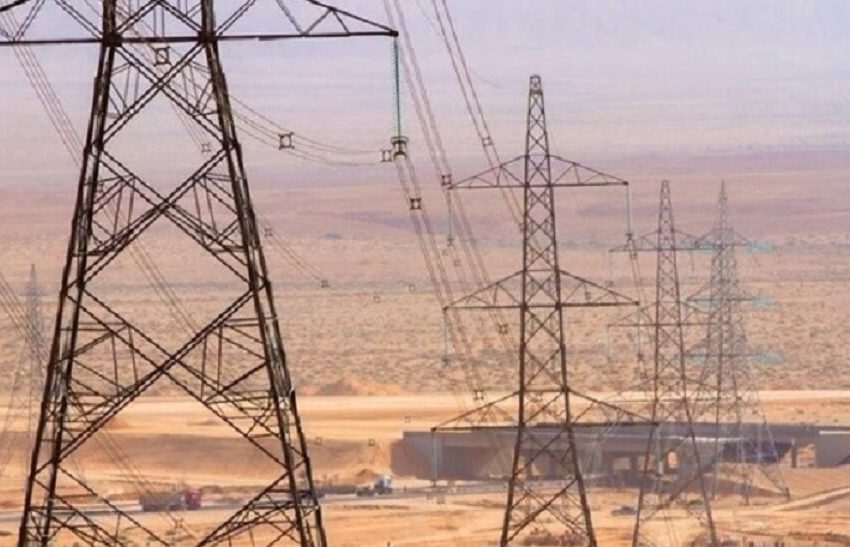Iraq to start receiving electricity from Jordan

Electricity transmission towers. Photo: AFP
Baghdad (IraqiNews.com) – The director general of Jordan’s National Electric Power Company (NEPCO), Amjad Al-Rawashdeh, said on Thursday that the Jordanian-Iraqi electrical interconnection line will go into operation on Saturday.
Al-Rawashdeh illustrated that that the line, which will supply electricity to the Al-Rutba area close to the Jordanian border, will link the Risha power plant in Jordan and the Al-Rutba power station in Iraq at a voltage of 132 kilovolts, according to the Jordan News Agency (Petra).
In a significant development, Iraq and Jordan signed an agreement on February 11 in the Jordanian capital, Amman, aimed at providing Iraq with an initial 40 megawatts of electricity – marking a crucial step towards addressing its energy needs.
NEPCO’s director general emphasized earlier the agreement’s compatibility with the common objectives of Jordan and Iraq to create electrical interconnection.
The electrical interconnection is expected to improve electrical energy interchange and support both sides’ electrical system stability. It is also a positive development that could impact the lives of many Iraqis directly.
The Jordanian official mentioned last month that the second phase, which is planned for the third quarter of 2024, is being prepared accordingly.
After the second phase is finished, 150–200 megawatts of capacity should be given to Iraq. In the medium run, further connecting phases may raise the supply to 500 megawatts.
The Iraqi Ministry of Electricity revealed this week that it is raising electricity production by 3,000 megawatts compared to last summer to reach 27,000 megawatts.
Iraq heavily relies on gas imports from Iran but has recently invested in many projects to start taking advantage of flared gas and using renewable energy to generate electricity.
Gas imports from Iran are extremely important for Iraq to generate electricity. However, US sanctions imposed on Iran make it difficult for Baghdad to pay for the Iranian gas.
Iraq witnesses daily power outages that may last up to 10 hours, but things worsen during the scorching summer when the temperature exceeds 50 degrees Celsius (122 degrees Fahrenheit).
The Iraqi Minister of Electricity, Ziyad Ali Fadel, announced in mid-March that an agreement had been signed with Siemens Energy to turn flared gas into fuel within six months.
Fadel confirmed that the agreement is part of the efforts of the Iraqi government to stop gas flaring and use it to generate electricity.
Siemens Energy will utilize 120 million cubic feet of flared gas within six months and an additional 120 million cubic feet in one year.
The produced gas will be used to fuel a 2000-megawatt power plant that will be constructed to enhance Iraq’s national electricity grid.
